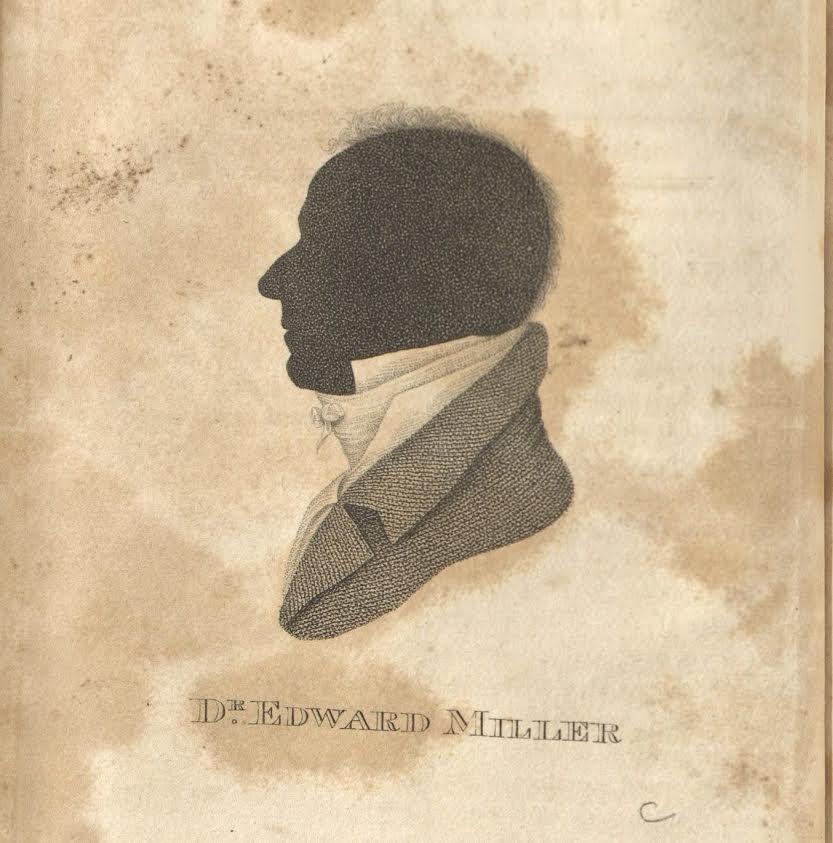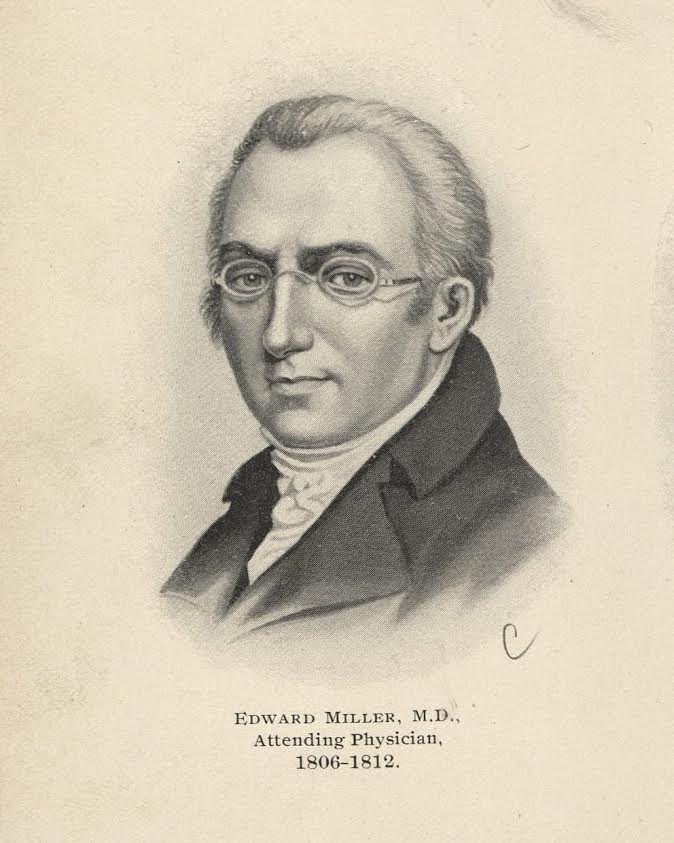Dr. Edward Miller was born in Dover, Delaware in 1760. He was the son of Rev. John and Margaret Miller, who headed the Presbyterian Church in Dover. Both Edward and his younger brother, Samuel, were astute scholars and well versed in Hebrew, Latin, and Greek languages. Before concluding his studies at Newark Academy, Delaware, Edward entered the army as surgeon’s mate and later became a surgeon to an army ship.
 Upon his return home, he resumed his studies at the University of Pennsylvania, graduated with his degree in medicine in 1785 and returned to Sussex County to enter the field of medicine.
Upon his return home, he resumed his studies at the University of Pennsylvania, graduated with his degree in medicine in 1785 and returned to Sussex County to enter the field of medicine.
Dr. Miller achieved excellence throughout his work and was an outstanding public speaker. He captured the ears of many with various speeches for a number of societies, including his first, the inaugural address at the Delaware Medical Society, only five years post-graduation. In 1793, Dr. Miller prepared a paper defending the theory of the domestic origin of yellow fever. Dr. Benjamin Rush, on receiving a copy of it, declared its author second to no physician in the United States at the time.
As various papers written by Dr. Miller began to circulate, he moved to New York City in 1796 and, in with Dr. Mitchell and Dr. Elihu Smith, established what would be the United States’ first medical journal: The Medical Repository. Dr. Edward Miller’s genius is evident in his papers through his style, arguments, originality, and his growing body of knowledge.
During his time in New York, Dr. Miller became a port physician of New York, a  Professor of the Practice of Physic in the University of New York, a physician at New York Hospital, now known as New York-Presbyterian, and an active member of the American Philosophical Society in Philadelphia. Both his flourishing reputation and respected published works brought about worldly connections with the most eminent men of the age in Great Britain, Germany, and France.
Professor of the Practice of Physic in the University of New York, a physician at New York Hospital, now known as New York-Presbyterian, and an active member of the American Philosophical Society in Philadelphia. Both his flourishing reputation and respected published works brought about worldly connections with the most eminent men of the age in Great Britain, Germany, and France.
In the Medical Repository, Dr. Miller published observations on cholera. He recommended calomel and opium in a form very different from what his peers recommended because he correctly believed the liver to be a material factor in the course of the disease. He continued to assert that opiates and aromatics alone were merely temporizing remedies and suggested the additional use of calomel.
Dr. Miller retired in 1810, serving only private patients in their homes in New York City.
Dr. Edward Miller died March, 17 1812, at the age of 55. Dr. Rush wrote a touching memorial of his life, as did other notable physicians of that time.